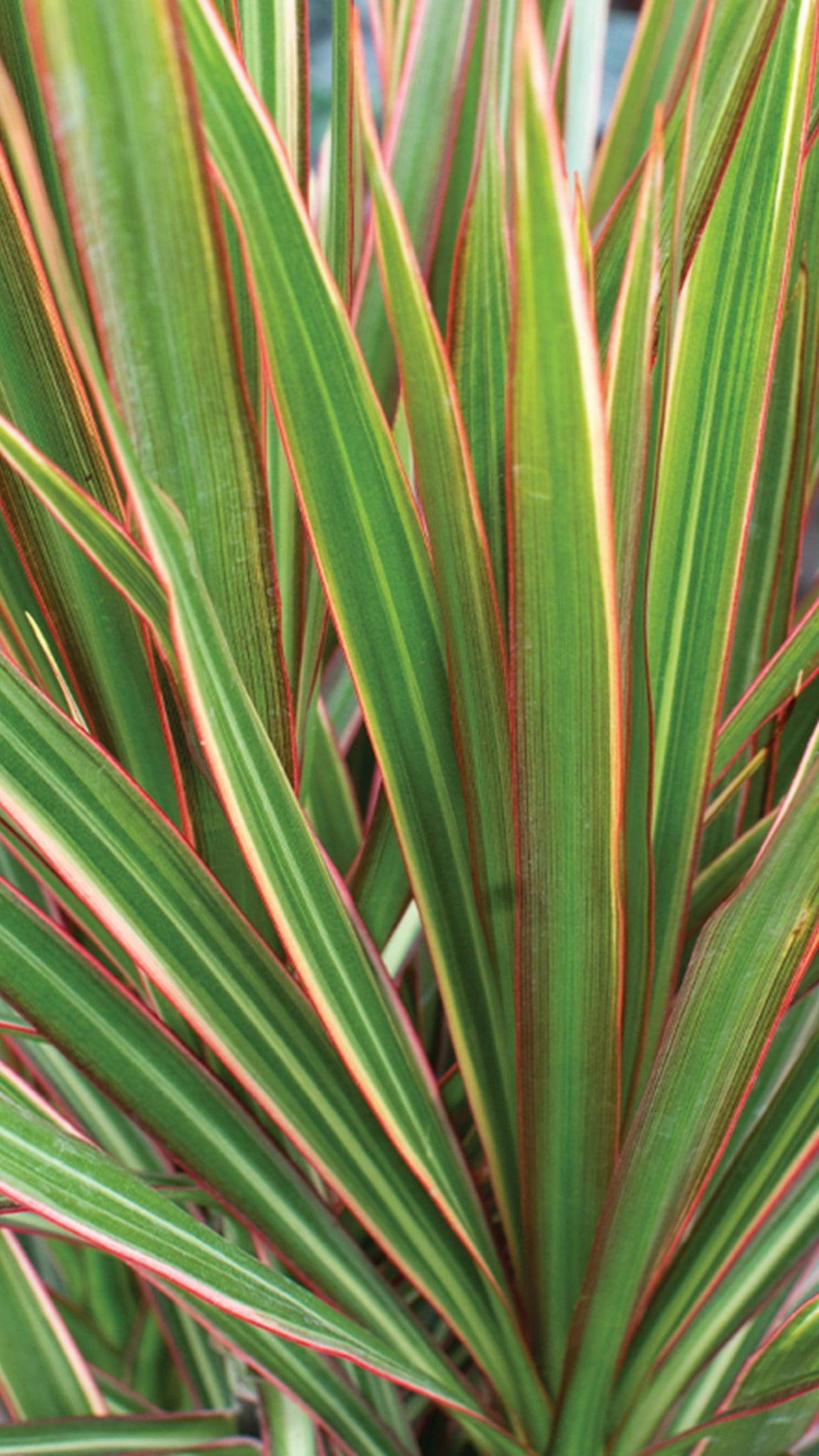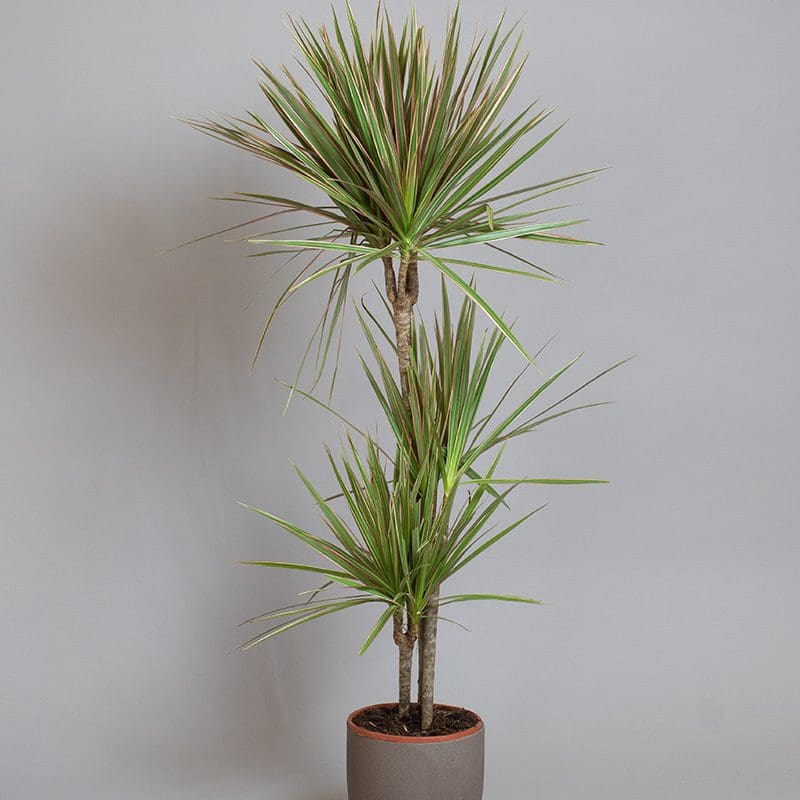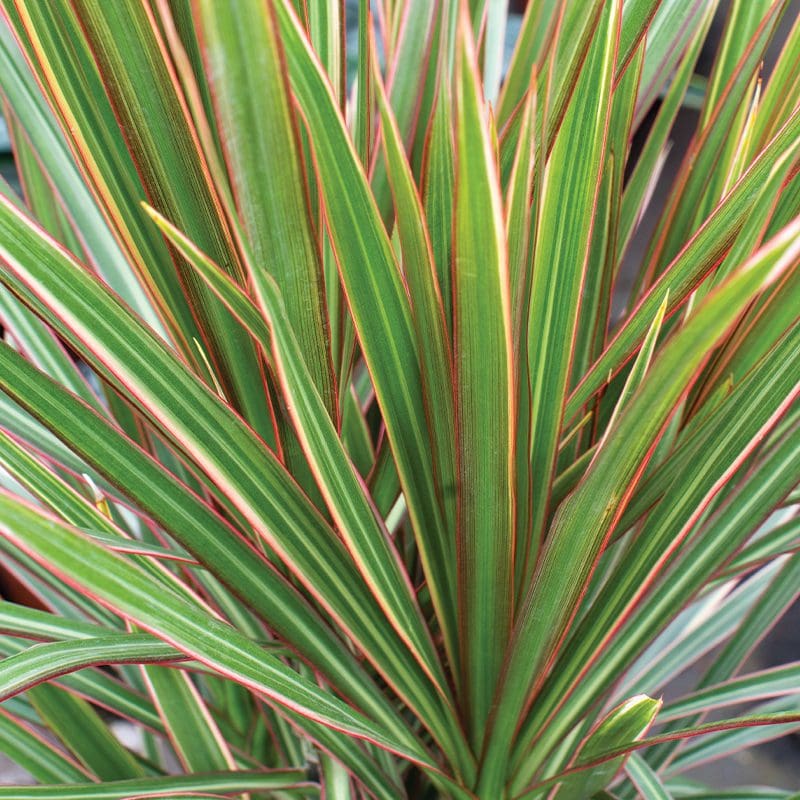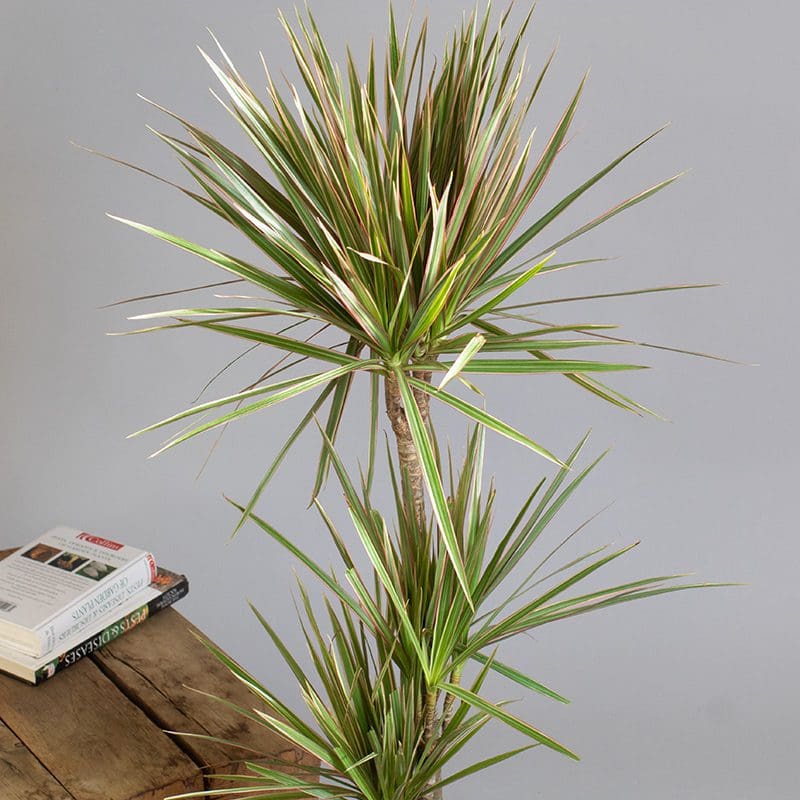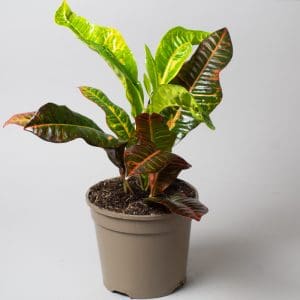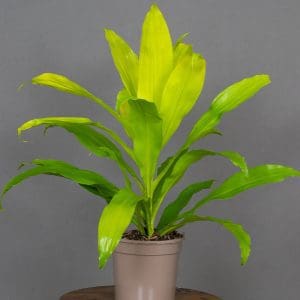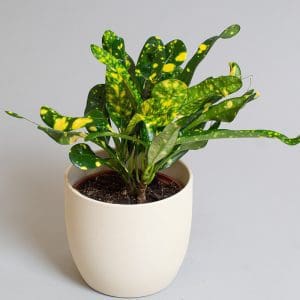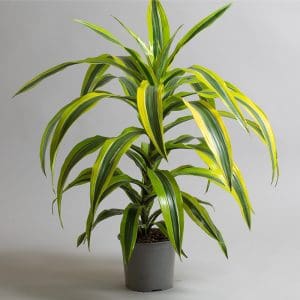No products in your basket yet
Dracaena Marginata Tricolour 3L
£42.99
Dracaena Marginata Tricolour is an amazing indoor plant with long, slender green leaves that are bordered in a light crimson tinge. These plants are ideal for beginners because they can endure drought and are not picky about their lighting. Dracaena marginata, sometimes known as the dragon tree, is a native of Madagascar. This tree can grow up to 20 feet tall in the wild, but it won’t grow much taller than 6 feet indoors. Marginatas prefers bright, indirect light, but don’t worry if you don’t have enough! This plant will do just fine in lower light conditions!
Three canes will make up this plant. First cane: 15 cm, Second cane: 30 cm, Third cane: 60cm
Size
Position
Humidity
Watering
Temperature
Toxicity
Description
All of us have heard a few stories about dragons, those bat-winged, scaly monsters that breathe fire, and we’ve probably all fantasised about having one as a pet. The name Dracaena is said to derive from the Greek term meaning “female dragon,” and this is where the mythological origin of the name may be found. Because of the resemblance they have to dragons, dracaenas are also frequently referred to as dragon trees or dragon plants.
Did you know that several dracaena species aid in air purification? According to a NASA study, Dracaena deremensis, Dracaena marginata, and Dracaena massangeana assist in the removal of certain airborne pollutants, making them great for naturally cleaning the air in your home.
Dracaena’s are also known for not requiring a lot of water. To avoid over watering don’t irrigate until the top one inch of compost is dry to touch. Also because these plants don’t like salts or minerals, use filtered water, rainwater, or distilled water.
Furthermore, this genus of plants can get quite big! The easiest way to keep them under control is to chop the plant at the required height. The cut region will produce new leaves, and the cuttings can even be propagated! However, it is critical that we understand how we can accomplish this. When the plant grows tall enough, the growing shoot can be snapped off. We can do this by holding the stem 3cm from the top of the plant and pulling on the plant’s tip, which should easily snap out. The cutting can then be re-rooted in compost, and the wound will heal in about 48 hours.
Botanical Name
Common Name(s)
